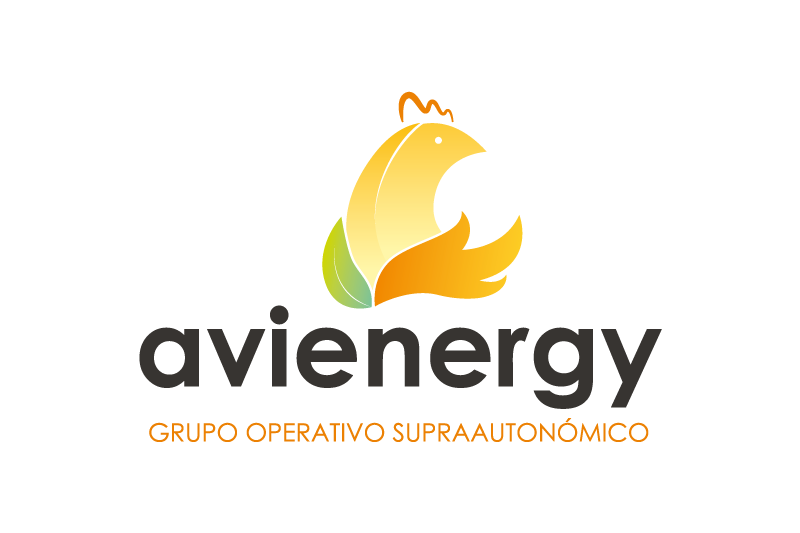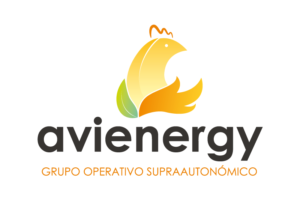This website uses cookies so that we can provide you with the best user experience possible. Cookie information is stored in your browser and performs functions such as recognising you when you return to our website and helping our team to understand which sections of the website you find most interesting and useful.
Participants
To carry out this initiative, a multidisciplinary operational group of a supra-autonomous nature (Galicia, Castilla-León and Murcia) has been created, which has a total of 10 participants between requesting members and collaborating members.
Requesting Members

Fundación Empresa-Universidad Gallega (FEUGA)
Representative of the Operative Group
FEUGA has spent nearly 40 years dedicating itself to the transfer of knowledge, innovation and technology between the research sector and the business world in different sectors, such as agri-food and forestry, through the revitalization and participation in projects, both at the regional and national levels as a European, as head of communication and dissemination in R&D projects. With more than 50 projects approved in the last six years, FEUGA has extensive experience in promoting and preparing R&D projects. Participation in these projects is based on carrying out communication, dissemination and transfer activities, for the execution of which it has a team with extensive experience in this field.

Energylab
EnergyLab is a private, non-profit technology center that has been developing R&D&i activities since September 2008, specializing in promoting energy efficiency and sustainability through innovation, its strategic lines of research: sustainable building, industry 4.0, bioenergy, and mobility and infrastructure. The objective of EnergyLab is to improve the competitiveness of the business fabric through the development of innovative projects that improve energy performance and reduce the environmental impact of its activities.

Demaux Manufacture S.L.
Company located in Narón (A Coruña), dedicated to the project, design and construction of industrial machinery, especially aimed at the timber, agricultural and forestry sectors.

Universidade de Vigo
The University of Vigo participates through the Energy Technology Group (GTE) a team of researchers from the University of Vigo that works fundamentally around thermal processes. The group focuses on thermal engines, energy technology and biomass combustion, both experimental and simulation. It is currently made up of more than 25 members including permanent professors, researchers and doctoral students. It is one of the research groups at the University of Vigo with the highest research production and knowledge transfer and since 2012 GTE has been a Competitive Reference Group of the Xunta de Galicia.
The main objective of the group is to consolidate research activity in the field of thermal and energy engineering and to become an academic and research benchmark in Spain, contributing to the technical and scientific development of Galicia. The main lines of research are:
- Biomass combustion
- Simulation of thermal systems
- Automotive heat exchangers
- Marine engines
- Use of phase change material (PCM) in construction projects and thermal storage systems
• CFD simulation in biomedical research
• Distributed microgeneration (micro combined heat and power installations)
• Deposition mechanisms in biomass boilers
• Technologies for the reduction of particulate matter emissions

Consejo Superior de Investigaciones Científicas
The Soil-Plant System Sustainability group belongs to the Department of Soil and Water Conservation and Organic Waste Management of the CEBAS-CSIC. The Segura Center for Edaphology and Applied Biology (CEBAS) is a Research Institute of the Higher Council for Scientific Research (CSIC), the largest public institution dedicated to research in Spain and attached to the Ministry of Science and Innovation. CEBAS is a multidisciplinary research center in Agricultural Sciences, Food Science, Food Technology, and Natural Resources located in Murcia,
The Soil-Plant System Sustainability group develops its research in the area of conservation and recovery of the soil-plant system, specifically regarding:
- Promote the development of the Circular Economy by treating organic waste, through composting and anaerobic digestion technologies, to obtain value-added products such as fertilizers and soil amendments.
- Reduce the environmental impact of organic waste through its recycling and recovery in the soil-plant system that allows closing the cycle of its nutrients and organic matter.
- Recovery of contaminated soils through plants (phytoremediation) to promote the functionality of the soil-plant system.

José Antonio García Farm
Broiler farm with a capacity for 40,000 chickens, with a biomass combustion system. The thermal needs derived from livestock farming and the large surplus of manure they generate require an innovative solution that allows reducing the environmental impact of the waste generated and at the same time providing thermal energy for the farm in a safe and efficient way, reducing the costs of production

Poultry El Charcon
Fattening turkey farm with 55,000 turkeys made up of 4 fattening sheds, with propane gas heating and currently manages waste (manure) with regular collection.

Alimentos del Mediterráneo S.Coop (ALIMER)
Alimentos del Mediterráneo S.Coop (ALIMER), is a national cooperative, located in the Region of Murcia, being the largest cooperative in said Community. It is distributed in different sections, which cover a large part of the agricultural and livestock activity. Among the sections to highlight are the Fruit and Vegetables and the Livestock
Collaborating members

Grupo Uvesa
UVESA was established in January 1964 in Tudela (Navarra). Initially, the company began producing feed for animal consumption, now moving to vertical production that includes feed production, intensive livestock farming and animal slaughter, and the production and marketing of food for human consumption.
The company’s facilities are distributed throughout the Spanish geography: feed factories (Tudela, Valladolid and Alcácer); poultry slaughterhouse (Tudela, Cuéllar, Catarroja and Málaga); incubation rooms (Tudela, and Puentegenil); processed, frozen, distribution, relabelling platform (Madrid-Getafe), processed plant in Casarrubios (Toledo) and slaughter and processing plant of the Sada de Rafelbuñol group (Valencia).
The main activities and products of the company are the following:
- Feed factories that mainly produce bulk feed: feed, weaned and transition piglets, fattening feed, feed for pregnant and lactating sows, feed for broilers and for breeding birds, medicated feed for both species for self-consumption.
- Integrated farms include genetic production centers such as grandmothers and great-grandmothers (pigs) or breeding centers (poultry sector). They have several incubation rooms or insemination centers.

Fundación Alimer
The Alimer Foundation was born with the aim of influencing the improvement of the agricultural and livestock sector from parameters unrelated to the marketing of products in this sector.
Fundamentally, it intervenes in non-profit social activities, in which the agricultural sector and the entire social, economic, and cultural spheres are promoted.
The Alimer Foundation collaborates with Food Banks, Women’s Associations in the rural sector, development of improvement programs in high-poverty areas, R&D&i in the livestock and agricultural sectors, and carries out activities for the transfer of results, dissemination, training, etc

